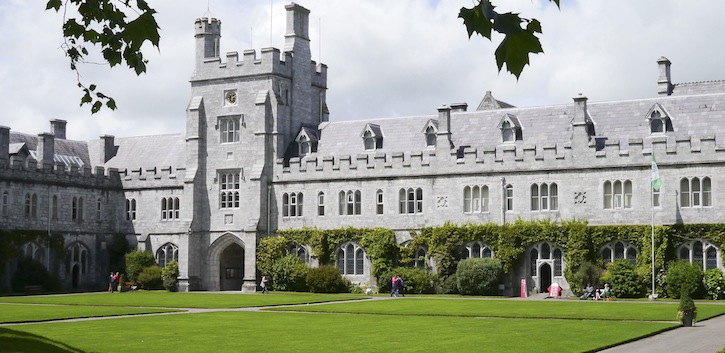2013 Press Releases
Alcohol consumption in early pregnancy

A HRB funded study at UCC suggests alcohol consumption in the first fifteen weeks of pregnancy does not alter odds for small-for-gestational-age neonate, reduced birth weight, preeclampsia, or spontaneous preterm birth.
The findings have just been published in ‘Obstetrics and Gynaecology’, one of the world’s leading Obstetrics and Gynaecology journals.
The research involved 5,628 participants in Ireland, the UK, Australia and New Zealand. Participants of the study were healthy females who had recently given birth between November 2004 and January 2011 in Auckland, Adelaide, Cork, London, Leeds, and Manchester.
According to Louise Kenny, senior author and Professor of Obstetrics, University College Cork, Director of the Irish Centre for Fetal and Neonatal Translational Research (INFANT), Cork and Consultant Obstetrician and Gynaecologist, University Maternity Hospital, "While the research indicates that alcohol consumption in early pregnancy does not appear to adversely affect conditions like small-for-gestational-age neonate, reduced birth weight, preeclampsia, or spontaneous preterm birth, it is really important to state that this study did not evaluate the association between alcohol consumption in pregnancy and long-term neurocognitive outcomes of children exposed as fetuses to alcohol."
Of the 5,628 participants, 1,090 (19%) reported occasional alcohol consumption, 1,383 (25%) low alcohol consumption, 625 (11%) moderate alcohol consumption, and 300 (5%) heavy alcohol consumption. Overall, 1,905 (34%) participants reported binge alcohol consumption in the three months before pregnancy, and 1,288 (23%) of the participants reported binge alcohol consumption during the first fifteen weeks of pregnancy.
Alcohol intake was classified as occasional (1–2 units per week), low (3–7 units per week), moderate (8–14 units per week), and heavy (greater than 14 units per week). Binge alcohol consumption was defined as consumption of 6 or more alcohol units in one session.
The research was conducted as part of a prospective international birth cohort known as Screening for Pregnancy Endpoints (SCOPE). SCOPE’s principal aim is the development of screening tests to predict, small for gestational age neonates, pre-eclampsia, spontaneous preterm birth or reduced birth weight neonates. The SCOPE Ireland Centre is led by Professor Kenny. She adds "While the research was conducted with the principal aim of developing screening tests to predict, small for gestational age neonates, pre-eclampsia, spontaneous preterm birth or reduced birth weight neonates, it does illustrate significant geographical variation in consumption patterns."
65–80% of participants in the United Kingdom and Ireland consumed some alcohol in pregnancy compared with 38% in Australia and 53% in New Zealand. Ireland had the highest proportion of alcohol consumption in pregnancy of all centres in this international study.
80% of the 1774 women recruited to the Irish study had consumed some alcohol in the first fifteen weeks of pregnancy. Over 20% reported drinking moderate to heavy amounts of alcohol at 15 weeks of pregnancy while 31% of women in Ireland admitted to two or more episodes of binge drinking in the first fifteen weeks of pregnancy compared with just 4% of women in New Zealand.
Dr Kenny concludes: "The potential for neurocognitive dysfunction remains one of the single most important reasons pregnant women to avoid alcohol intake during pregnancy and this paper highlights an important gap in between health care provider’s advice and what actually happens."
